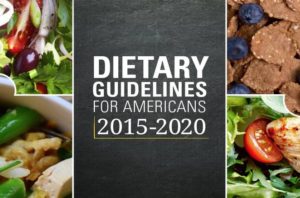
Last week, the federal government published Dietary Guidelines and confirmed the credentials of the nutritional regulations by stating: “a growing body of research has examined the relationships between overall eating patterns, health and risk of chronic disease, and findings on these relationships are sufficiently well established to support dietary guidance.”
However, a number of nutrition research experts admit that the actual scientific data on this issue can be elusive. This also applies to the health and nutrition of some of the most common foods in the American diet.
There’s also new research that provides some insight into the unsettling nature of the data. This may come across as an attack on the nutrition establishment, but it’s actually not. The paper comes from mainstream researchers and appears in the journal Circulation, published by the American Heart Association. Dariush Mozaffarian, author of the study, is the dean of Tufts University’s nutrition school. The paper was funded by the National Institutes of Health.
In the paper, there are essential nutrition ideas that make the connection between heart disease and diet. For each of the ideas, there is a level of science that explains it. Mozaffarian states that there are four scientific consensus levels, ranging from “broad concordance and less controversy (the highest level) to “substantial controversy and/or uncertainty” and “insufficient evidence for meaningful conclusions” (the lowest level).
For instance, in the new Dietary Guidelines, it is suggested that Americans limit their daily consumption of saturated fats to 10 percent of all calories in their diet. Saturated fats are those found in animal products. The authors of the Dietary Guidelines maintain that the guidelines are based on nutritional science that has been established. Mozaffarian says the assumed harm caused by saturated fats cause is actually uncertain, and that science related to this topic has “substantial controversy and/or uncertainty.”
Another example of this principle is that the Dietary Guidelines encourage Americans to start using vegetable oil in place of butter. Mozaffarian says the science that supports the dietary dangers of butter involves “substantial controversy and/or uncertainty” as well, and claims that the science supporting the benefits of vegetable oils are equally controversial.
As a general rule, it is likely best for Americans to stick to a diet that is free or low in processed foods, as well as one low in sugars and sodium. These guidelines have been known to prevent detrimental diseases that significantly affect the African-American community, including hypertension and type 2 diabetes.